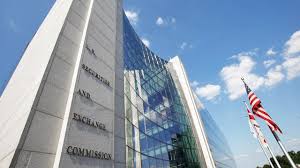SEC Promotes Value of Cooperating Witnesses
 Change does not occur overnight. The SEC, as much as any other government agency, has touted its hiring of former prosecutors and use of aggressive investigation tactics. I always took those statements with a grain of salt – after all, the SEC is enforcing civil laws and regulations. A prosecutor can only do so much in the civil enforcement arena.
Change does not occur overnight. The SEC, as much as any other government agency, has touted its hiring of former prosecutors and use of aggressive investigation tactics. I always took those statements with a grain of salt – after all, the SEC is enforcing civil laws and regulations. A prosecutor can only do so much in the civil enforcement arena.
In a recent Wall Street Journal article, the SEC’s enforcement program is bearing fruit from this specific strategy. Potential defendants are “cooperating” in greater numbers to seek non-prosecution or reduced penalties.
The SEC’s strategy is sure to increase the number of companies and individuals subject to prosecution. Cooperating witnesses are the lifeblood of criminal enforcement programs. The SEC’s ability to turn this same strategy into positive civil enforcement results is a testament to its creativity and talent.
Every prosecutor knows how challenging cooperating witnesses can be to present to a jury. In the SEC’s case, to the extent that it relies on administrative enforcement proceedings, a cooperating witness is very likely to be credited.
Juries have a far different reaction to a cooperating witness, and have to be convinced that the cooperating witness is being truthful. Often, that depends on the manner in which the cooperating witness testifies and the extent of corroboration.
Prosecutors must be highly skilled to “flip” a defendant/witness. They have to convince the defendant/witness that it is in their interest in cooperating against another defendant. If a prosecutor can only offer a reduced or non-prosecution of a civil case, the prosecutor does not have very much of a ”benefit” to offer the defendant/witness.
Even with this limited set of tools, SEC prosecutors appear to be making headway with approximately 91 cooperating witnesses.
The SEC’s practices, coupled with DOJ’s ability to offer significant criminal benefits to potential cooperating witnesses, and the maturing of whistleblower programs, create very real risks of aggressive enforcement. Prosecutors are becoming more adept in sharing information with other prosecutors. In time, prosecutors will have access to vast sources of information from cooperating witnesses, informants and other sources of information.
Criminal enforcement risks have increased significantly in the last ten years. Over the next ten years, companies can expect an exponential increase in risks based on government organization and access to increased sources of information.
Whether this trend will have any impact on corporate attention to ethics and compliance is unknown. Forward-thinking board members and CEOs have to recognize that increased prosecution risks require even more attention to ethics and compliance programs. Narrow corporate leaders, however, will continue to ignore these risks, devote more attention to quarterly results, and express disbelief (and disgust) when serious misconduct occurs in the company.
 Everyone expected a significant uptick in compliance in response to the SEC’s whistleblower program. It is hard to see any real evidence of this uptick. Companies are having trouble enough identifying risks and responding to these risks with meaningful compliance efforts.
Everyone expected a significant uptick in compliance in response to the SEC’s whistleblower program. It is hard to see any real evidence of this uptick. Companies are having trouble enough identifying risks and responding to these risks with meaningful compliance efforts.
Eventually, companies have to take a serious holistic view of enforcement risks, respond appropriately, and monitor trends in this area. The government will not stand still when it comes to employing investigative techniques to build criminal and civil enforcement actions against companies. Companies have to make sure they continuously monitor and improve their programs or they may face drastic consequences.















Excellent written and helpful article, Mr. Volkov.